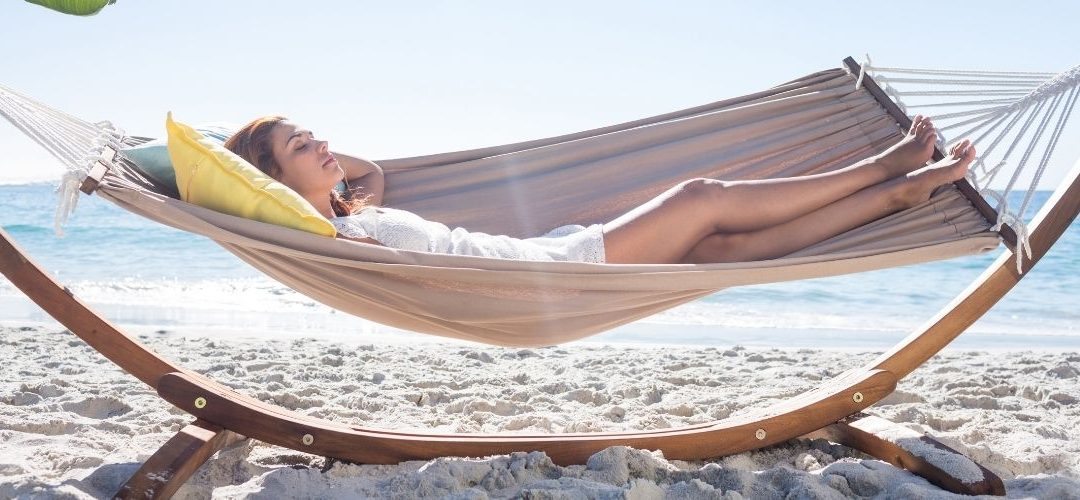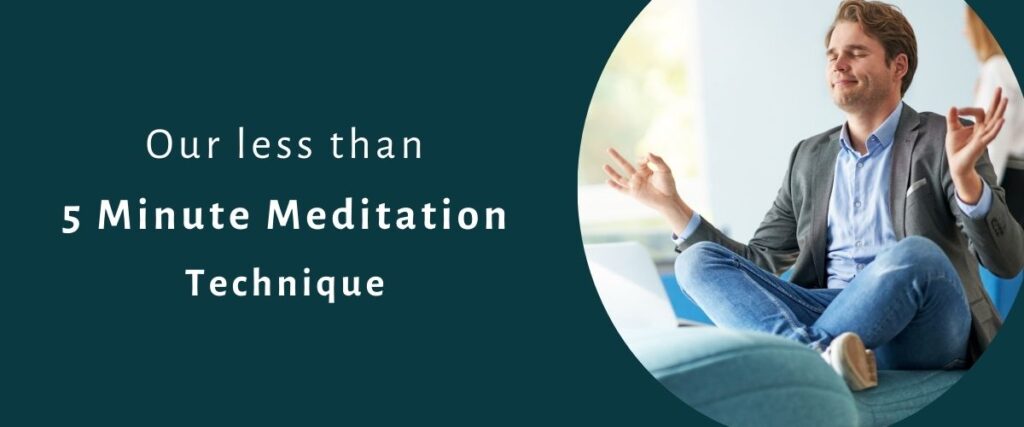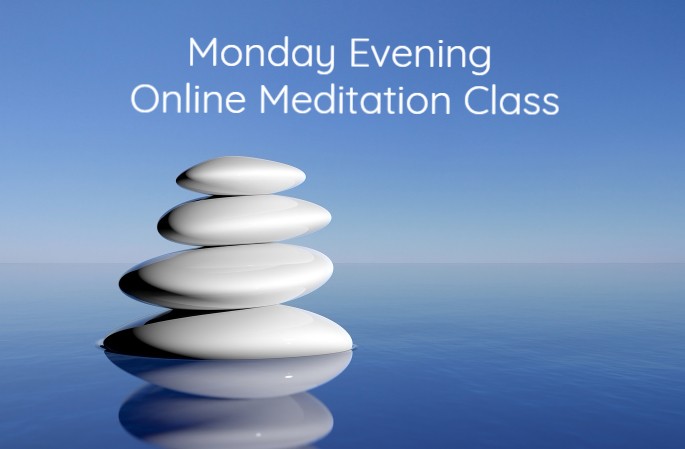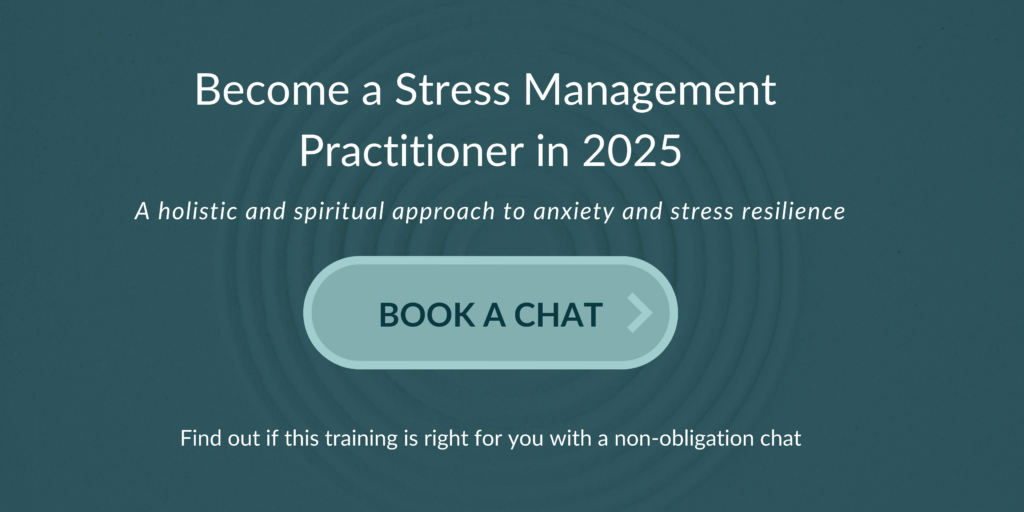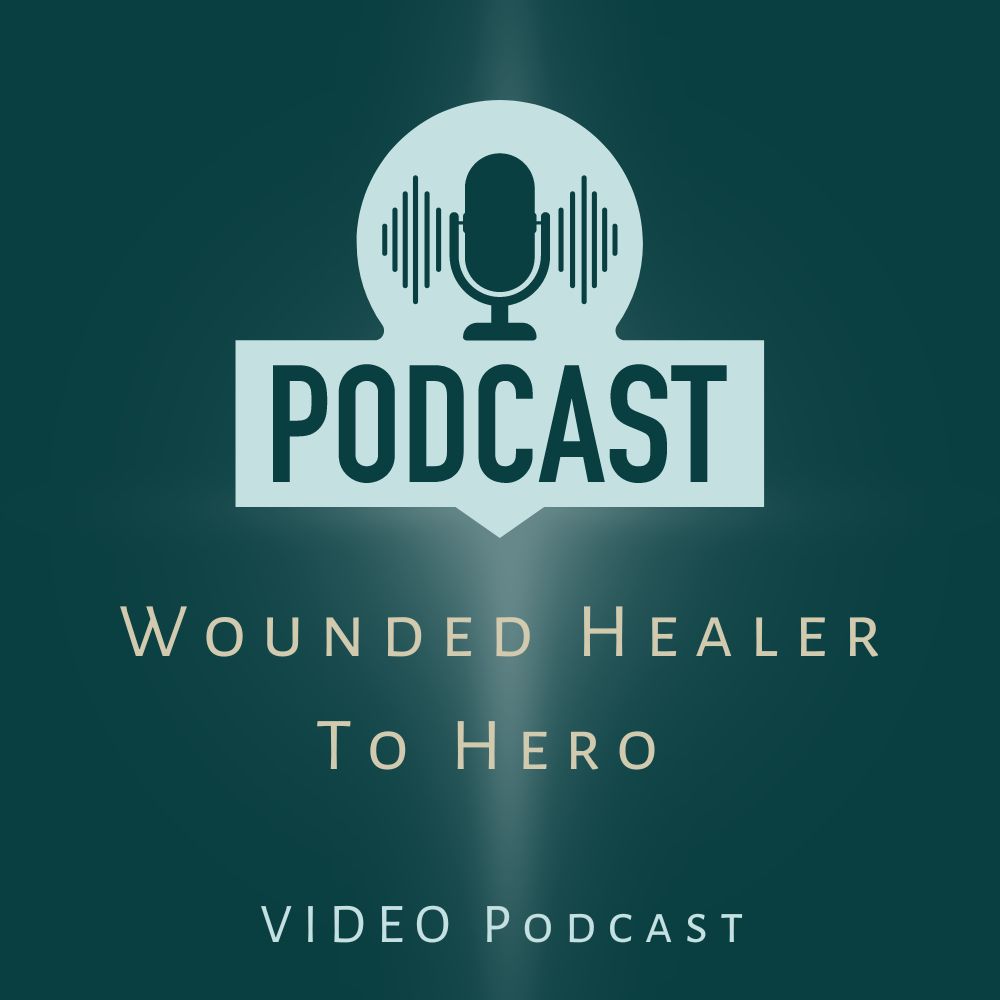How To Relax Deeply – 7 Natural Ways To Help You Relax Deeply
Can You Relax Deeply, Sleep Deeply, or Switch Off without the help of a device, distraction, or form of medication? Sadly millions of people today, struggle to relax, too many depend on prescription medication, alcohol, or illegal drugs to relax. Because they are overstimulated, over-anxious overstressed. When the reality is the ability to relax physiologically and psychologically plays a very important part in our mental, physical, emotional, and even spiritual wellbeing.
Why We Need To Be Able To Relax Deeply
So why do we need to be able to relax deeply? What purpose has relaxation on the human physical body and the human psyche?
Well, the ability to relax deeply is known as the Relaxation Response, this acts as a cushion against the Anxiety and Stress Response. The more stress and anxiety you suffer or struggle with, the more likely your mind, body, and emotions are likely to fall into a cycle of chronic stress or chronic anxiety.
To counteract the stress response we need the relaxation response. We only achieve that total relaxation response through deep relaxation. That is why our Relaxation Therapists and Stress Management Practitioners at Stress Coach Training are taught to teach clients a variety of different relaxation techniques, as well as a variety of meditation, breathing, stress and anxiety management, and stress resilience techniques to help you switch off and relax.
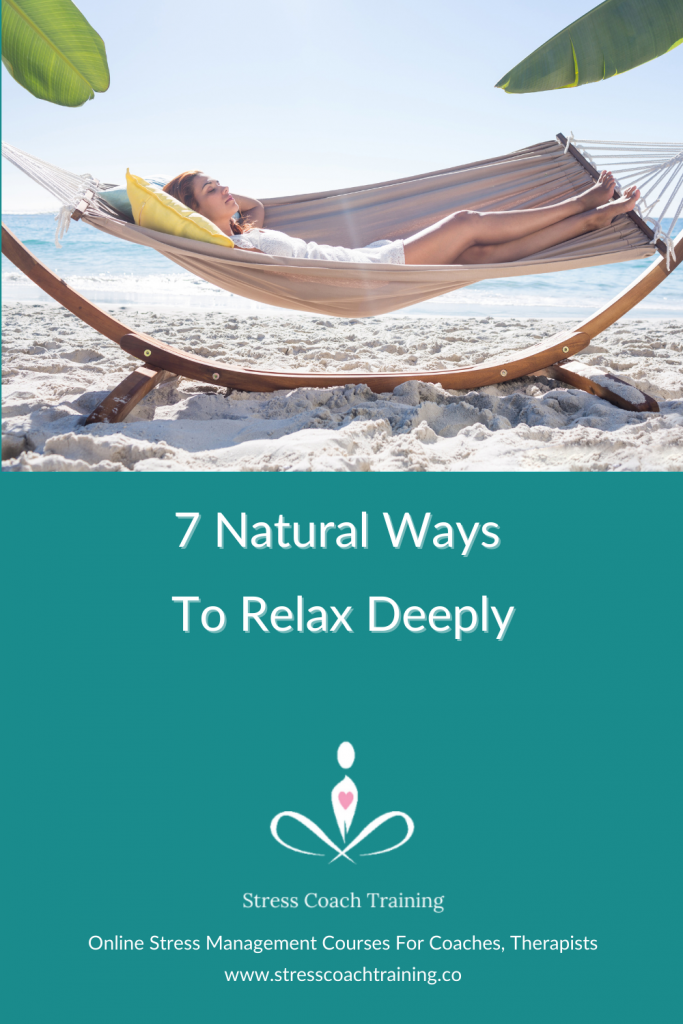
Muscle Relaxation Techniques:
Different Muscle Relaxation Techniques especially PMR Progressive Muscle Relaxation Techniques help the mind, body, and emotions relax deeply. These techniques can help the mind move into the Alpha and Theta Brain Wave state.
But Relaxation Muscle Exercises are also very helpful at releasing old tension, and old-struck energy that is trapped in the cellular body. You would be surprised at how much tension you are holding in your muscles and how long you have been holding it. A suitable Qualified Relaxation Therapist & Teacher will teach you what is the most suitable technique for you.
Soothing and Hypnotic Guided Meditation (Guided Visualisation):
Guided Meditations that use Guided Imagery where the narrator describes a hypnotic or deeply relaxing scene using relaxing anchors can be extremely useful at helping you relax deeply and sleep deeply again help you move more into Alpha and Theta State. For example Golden Sand- Sleep Guided Meditation.
Relaxation Response:
Although technically the Relaxation Response is a term that generally describes a specific depth of relaxation opposite the Stress Response. Herbert Benson coined the term Relaxation Response to describe a relaxation technique he developed from the basics of meditation and yoga.
Breathing Techniques:
Breathing Techniques can be another useful strategy to help one relax deeply if used correctly. But one of the things I have witnessed as a therapist for over 20 years, was far too many clients who ended up with more issues especially serious anxiety disorders or breathing anxiety because of practitioners’ inappropriate or overuse of breathing techniques.
One of the reasons our trained therapists tend to teach clients specific relaxation techniques to help combat the anxiety and stress response first.
Yoga Nidra:
Yoga Nidra ( Yogic Sleep) is a deeply relaxing form of yoga that encourages you like relaxation techniques and guided meditations to bring you into a state of consciousness between waking and sleeping.
Qi Gong:
There are many deeply relaxing Qi Gong Movements and Meditations that can be deeply relaxing. One of the most popular techniques I ever taught was a 6 that I slightly changed and adapted into a less than 5- Minute Meditation to suit very angry and frustrated male teenagers.
It went down so well I started to use it in all my workshops and sessions and it became the most popular meditation and stress management tool of 20 years.
Essential Oils:
Pure essential oils have a wide range of therapeutic properties, some essential oils are extremely relaxing, some deeply sedating while others are very refreshing or energizing. As an aromatherapist, these are some of the relaxing oils that I recommend that will help you relax deeply.
Frankincense which has a warm masculine scent is deeply grounding and calming oil. Frankincense oil helps nourish and support the nervous system. Frankincense is regarded as a sacred oil and resin that can support deeper meditation and clear energy.
Sandalwood also has a more masculine grounding scent that is again very grounding and relaxing, helping us feel more calm and centred.
Ylang Ylang is one of my favourites it is deeply comforting and soothing it is quite a sensual oil but ylang ylang oil is used for inner child, relaxation and sleep, and can also help encourage soothing dreams if you tend to suffer nightmares or night terrors.
Vetivert is a very deeply sedating oil, it is useful for people who suffer from insomnia, and those who work shifts. The only caution with Vetivert is it should be used sparingly and not used every evening, as residues of the oils can last in the body for up to 7 days.
Lavender is generally relaxing for most people especially children, but some of us find it is more relaxing than clarifying, if it is mixed with other grounding or relaxing oils I like to add 1 drop of Lavender to a few drops of Ylang Ylang in my bath.


